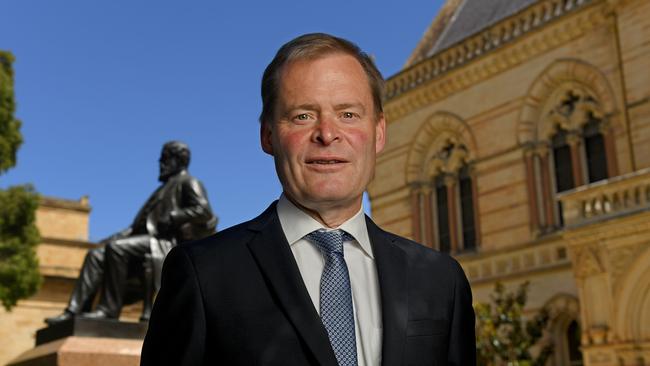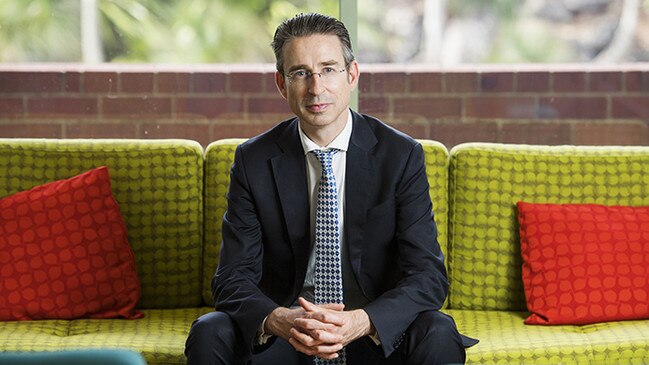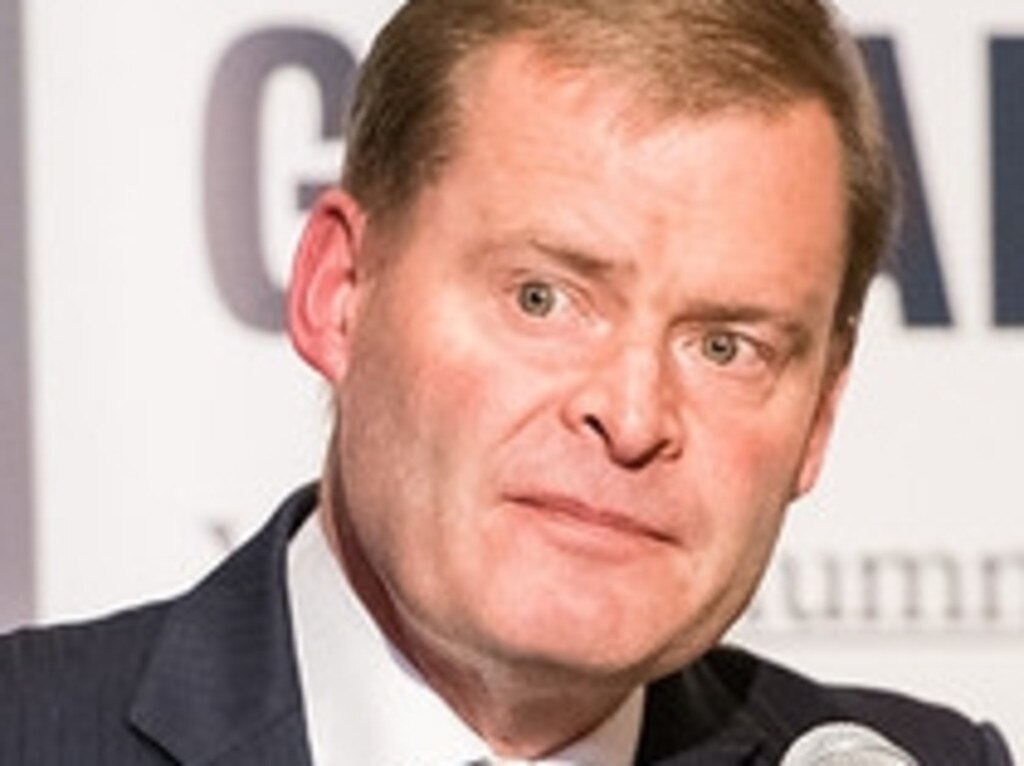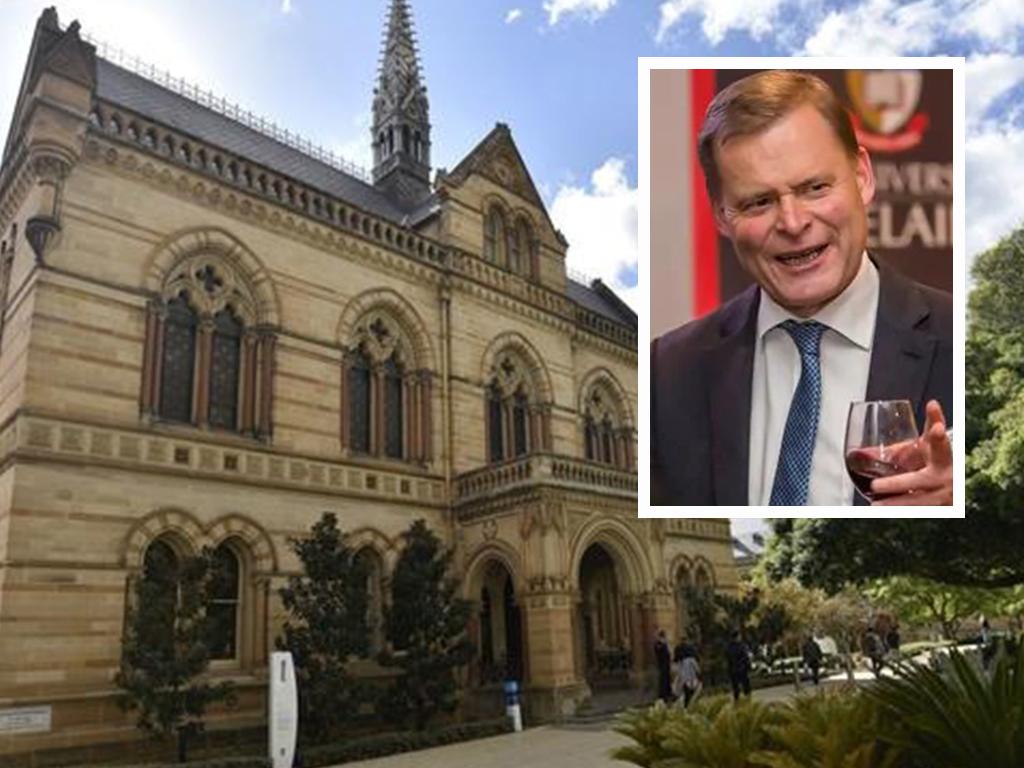
Last week South Australian Independent Commissioner Against Corruption Bruce Lander revealed in a sensational statement why former University of Adelaide vice-chancellor Peter Rathjen had first stood aside and then resigned from his job. He had sexually harassed female employees of the university and repeatedly lied about it, both to the university and to Lander.
In his report, Lander said Rathjen had engaged in unwanted and unwelcome sexual conduct with two university employees, Ms A and Ms B, in April 2019. It included hugging, kissing and touching on the bottom.
The then chancellor of the university, former SA Governor Kevin Scarce, dealt with the allegations in a letter of warning to Rathjen, but didn’t inform the university council because of concerns about the privacy of the two women and the fact that he had legal advice saying he didn’t need to tell the council, even though it was the body that employed Rathjen.
Then in August a blogger made separate allegations about Rathjen and sexual harassment. Rathjen also became aware of a Victorian senior counsel’s investigation into yet more allegations about sexual misconduct by him when he was at the University of Melbourne.
Yet he told Scarce there was nothing else the chancellor needed to know about his past conduct.
Matters came to a head in January this year when Ms A claimed compensation from the university, both for Rathjen’s conduct and what she saw as victimisation of her by the university following the April 2019 incident.
In March the matter was reported to Lander’s office and the ICAC investigation began, centring on Rathjen’s conduct toward Ms A and Ms B, Ms A’s treatment by the university, and how the university dealt with Ms A’s original report of sexual harassment, which also drew Scarce into the inquiry.
As a result both Rathjen and Scarce stood down from the powerful convener’s committee of the university council. In Scarce’s absence the committee decided to advise him that if he did not resign a motion would be put to the council for him to stand down during the investigation.
The result was that Scarce — whose conduct was later given the green light by Lander in his report — resigned in late April. “He elected to put the university’s interests above his own,” Lander said.
Days afterwards Rathjen went on indefinite leave from which he never returned and the university was thrust into unprecedented turmoil at the same time that its revenue was collapsing from the loss of international students due to COVID-19 travel bans.
Rathjen eventually resigned in July, and the more complete story of what occurred was not revealed until last week when Lander released his statement (although much of what occurred will never be publicly known because Lander decided his full 170-page report would not be released in order to save embarrassment to Ms A and Ms B).
The experience with Rathjen no doubt underlines to the University of Adelaide council the importance of choosing their next vice chancellor after careful due diligence.

It was a coincidence that on the same day, August 26, that Lander revealed details of the failures of governance at the University of Adelaide, Southern Cross University announced the appointment of its new vice-chancellor.
Chancellor Nick Burton Taylor said that Tyrone Carlin, currently a deputy vice-chancellor at the university, will replace Adam Shoemaker who is leaving the Lismore-based SCU to head up Victoria University.
But there was a fascinating detail in the chancellor’s announcement to staff. He revealed that on the same day that Shoemaker had resigned in mid-August, a subcommittee of the council met and decided to recommend Carlin as his successor.
Shoemaker’s resignation was a “surprise” Burton Taylor later told The Australian. Nevertheless council members immediately settled on a new vice-chancellor without any search process. No steps were taken to ensure the university’s next leader was chosen from the widest possible pool of talent.
“I find the process very unusual. Universities normally take months to head hunt new vice-chancellors, months to interview them. This wasn’t even advertised,” says Michael Thomson, NSW state secretary of the National Tertiary Education Union.
Carlin was previously in the news when he was chairman of the accountancy group CPA Australia at a time when member frustration was boiling over at the high salary paid to the then CEO, inveterate self-promoter Alex Malley.
A week after Carlin’s appointment as chairman, the CPA Australia board agreed to increase Malley’s notice period from two years to three years, which boosted Malley’s termination payment to $4.9 million when he was sacked about eight months later.
Burton Taylor told The Australian that Carlin “had been very open with council and his university colleagues in relation to his previous role at chair of CPA Australia and the university conducted its own due diligence at the time of his appointment. There is nothing more to add and Professor Carlin left that role more than three years ago”.
He said that, as a deputy vice-chancellor in the past two years Carlin was “at the forefront of the change leadership that is needed to allow the university to prosper.”
There is no suggestion of improper behaviour by Carlin and no similarity between his situation and Rathjen’s.
But, from a governance point of view, it is surprising that the SCU council should have moved so quickly to appoint a vice-chancellor to lead the university.








As Australian universities battle to come to grips with a dangerous new era — real cuts in government subsidies per student in Dan Tehan’s new package, the international student collapse, huge job losses and a parliamentary inquiry into foreign interference — two other issues raise their heads that can’t be ignored: leadership and governance.